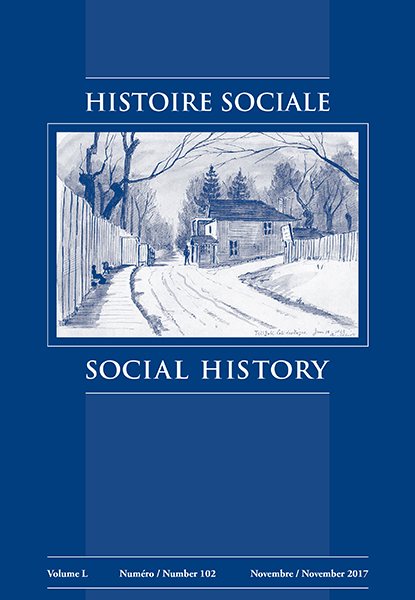“Commend me the Yak”: The Colombo Plan, the Inuit of Ungava, and ‘Developing’ Canada’s North
DOI:
https://doi.org/10.1353/his.2017.0039Abstract
This article engages with the entangled histories of Canadian foreign aid and relations between Indigenous peoples and Canada. Specifically, it traces a proposal in the early 1950s to use the Colombo Plan, the Commonwealth development program in which Canada was a participant, to transfer yaks from India for use in the “development” of the Inuit population in northern Quebec. While the relocation was ultimately never realized, the episode reveals how questions of race and empire, not least the environmental dimension of these, along with the priority accorded to promoting a liberal-capitalist version of “modernization,” informed the imaginary underpinning the Canadian state’s engagement with Indigenous populations and the Global South. More broadly, the subject matter highlights how the history of Indigenous-settler encounters informed Canadian attitudes regarding development assistance, and vice versa.
Le présent article aborde l’histoire enchevêtrée de l’aide canadienne internationale et des relations du Canada avec ses peuples autochtones. Il retrace en particulier la proposition formulée au début des années 1950 d’utiliser le « plan Colombo », programme de développement du Commonwealth auquel participait le Canada, pour importer d’Inde des yacks destinés à servir au « développement » des populations inuit du Nord du Québec. Bien que cette idée ne se soit finalement jamais concrétisée, cet épisode révèle la façon dont les questions de race et d’empire, y compris dans leurs dimensions environnementales, ainsi que la priorité donnée à l’avancement d’une version libérale-capitaliste de la « modernisation », ont façonné l’imaginaire qui sous-tend l’engagement de l’État canadien envers les populations autochtones et les pays de l’hémisphère sud. Plus largement, ce sujet éclaire la façon dont les rencontres entre Autochtones et colons ont influencé la position du Canada vis-à-vis de l’aide au développement, et vice versa.


